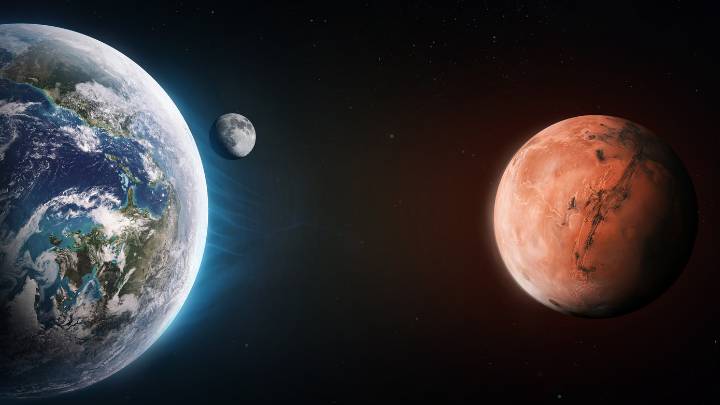Discovering Community and Space Dust

Zach Guikema organizing plastic ziplock bags full of remnants from the rooftops. To date, he's discovered 10 micrometeorites.
With a trowel in one hand and a bucket in the other, Zach Guikema walks along the roofline of the Prince Conference Center. He’s collecting space dust.
“It’s called urban micrometeorite collection,” said Guikema, a geology major, who is about to start his junior year at Calvin University. “We are trying to find small particles of dust that come from space. They start small, enter our atmosphere, melt, and then recrystallize as they cool down. They fall on roads, trees, and where I’m looking for them: roofs.”
Finding Community and Opportunity
What Guikema’s doing has never been done at Calvin before. But his path to discover this opportunity is par for the course. When he was looking at colleges and universities, he was drawn to Calvin because of the community. He would soon see how through community he would discover opportunity.
It started in his residence hall, where he got involved in dorm life early on and by his sophomore year he had become the residence hall executive team president, helping plan events for his hall.
He would also find community and opportunity in his area of study. In fact, in his first semester at Calvin, he was already doing research through FYRES—a program specifically designed to give first-year students research experience right out of the gate.
“I was doing dune research my freshmen year. You won’t find that anywhere else,” said Guikema. “I learned how to do good research, how to go out into the field and take good notes, how to apply what I am learning in my lectures out in the field, and what we do as geologists.”
At the end of the semester, Guikema and his group, which included a few other first year students, had to write up and present their research. “That course overall gave me good insight of what’s to come here at Calvin and what’s expected of me.”
For Guikema, it would only get better.
Going Deeper
“As my courses have ramped up in difficulty, it’s been quite interesting to learn more and more and it draws me in more,” said Guikema. “It’s also been so good to be in a department where it’s such a tight-knit community. You know everybody and the profs get down on your level and you have good conversations and learn more effectively because of that.”
The other result of these relationships? Opportunities, like going up on a roof searching for space dust.
“This wasn’t even my idea,” said Guikema. “I took a course with Professor Ratajeski last fall, and he saw something in me and invited me to join him in this project that he wanted to do this summer.
“It’s an interesting project and I’m happy to be part of it because this kind of work has only been a real thing for about nine or ten years,” said Guikema. “No one on campus has ever done this.”
Discovering Together
The goal of Guikema and Ratajeski’s project, which is funded by the Michigan Space Grace Consortium (with additional funds provided by the Dice Foundation), is to establish the first collection of micrometeorites on Calvin’s campus and to improve collection methods. The novelty of the project has the two learning together.
“The only real resources we have are maybe a dozen papers and a couple of people in the world who know what they are doing,” said Guikema. “So, it’s been really good to have that close relationship with Dr. Ratajeski, to be able to ask good questions and bounce ideas and questions off each other and learn more as a result.”
With a depth of community now formed at Calvin, Guikema is ready to begin the second half of his college journey.
“I’ve enjoyed it all, but am getting into the good stuff now,” said Guikema.
To date, Guikema has found 10 micrometeorites.







